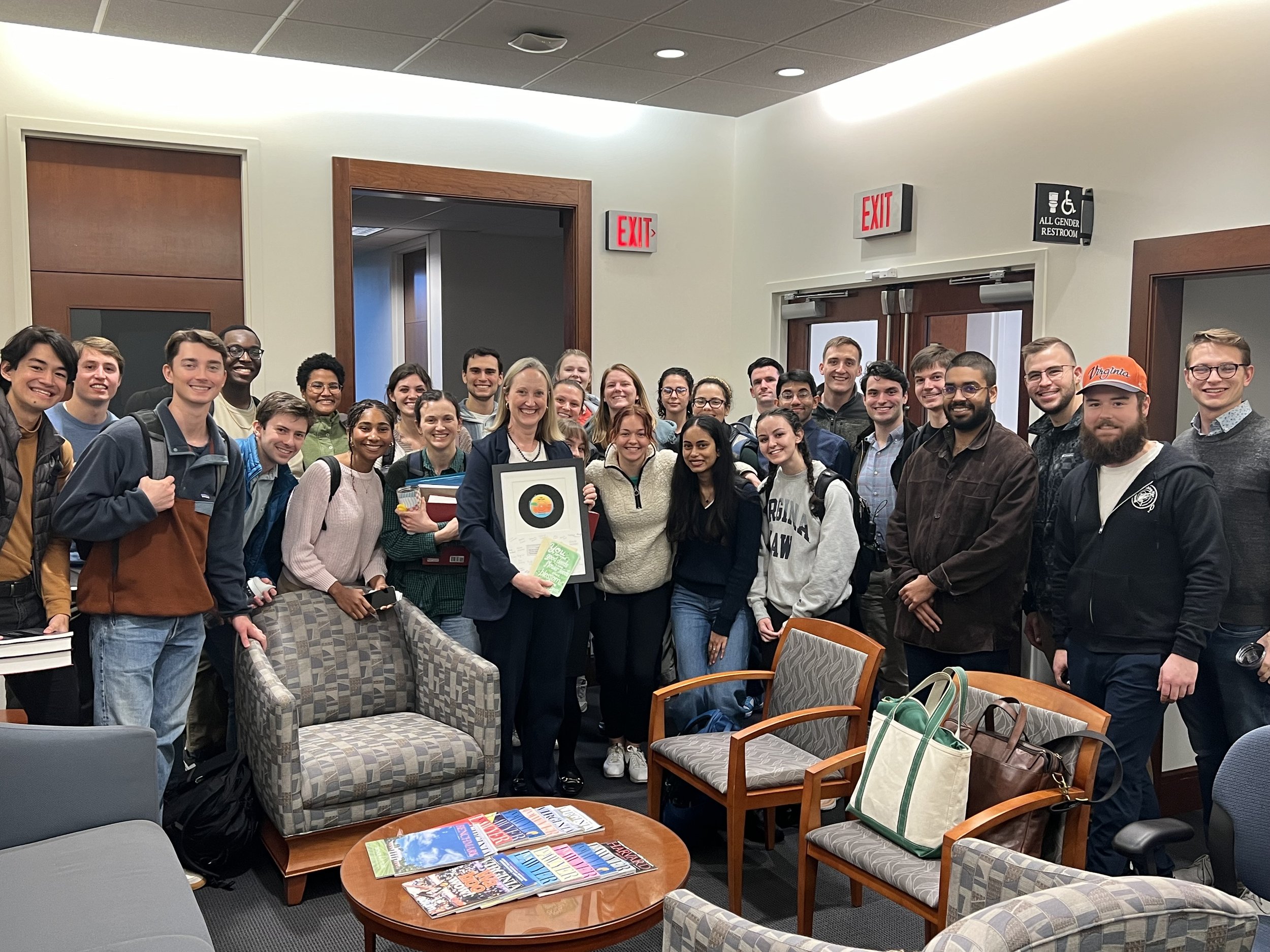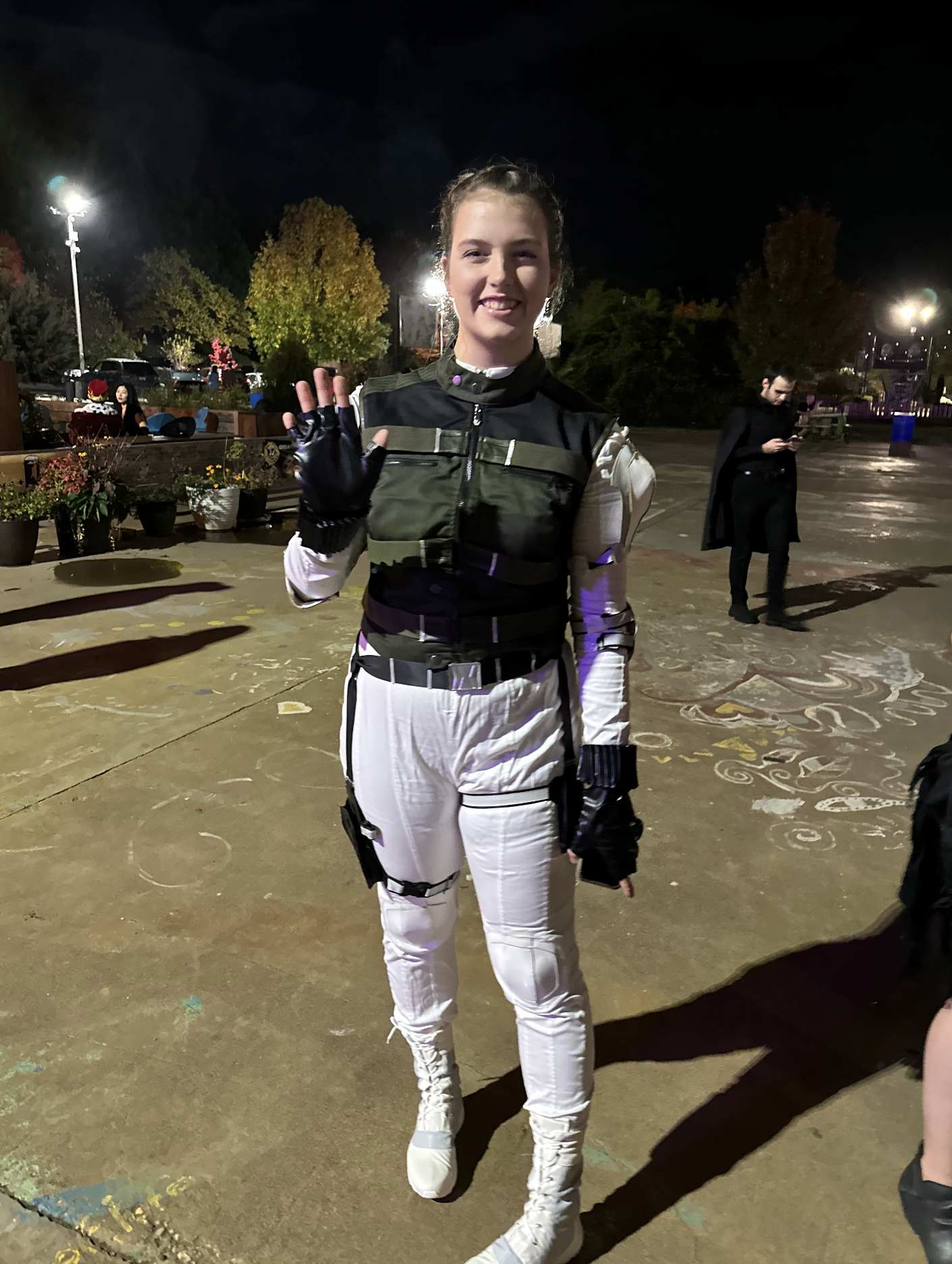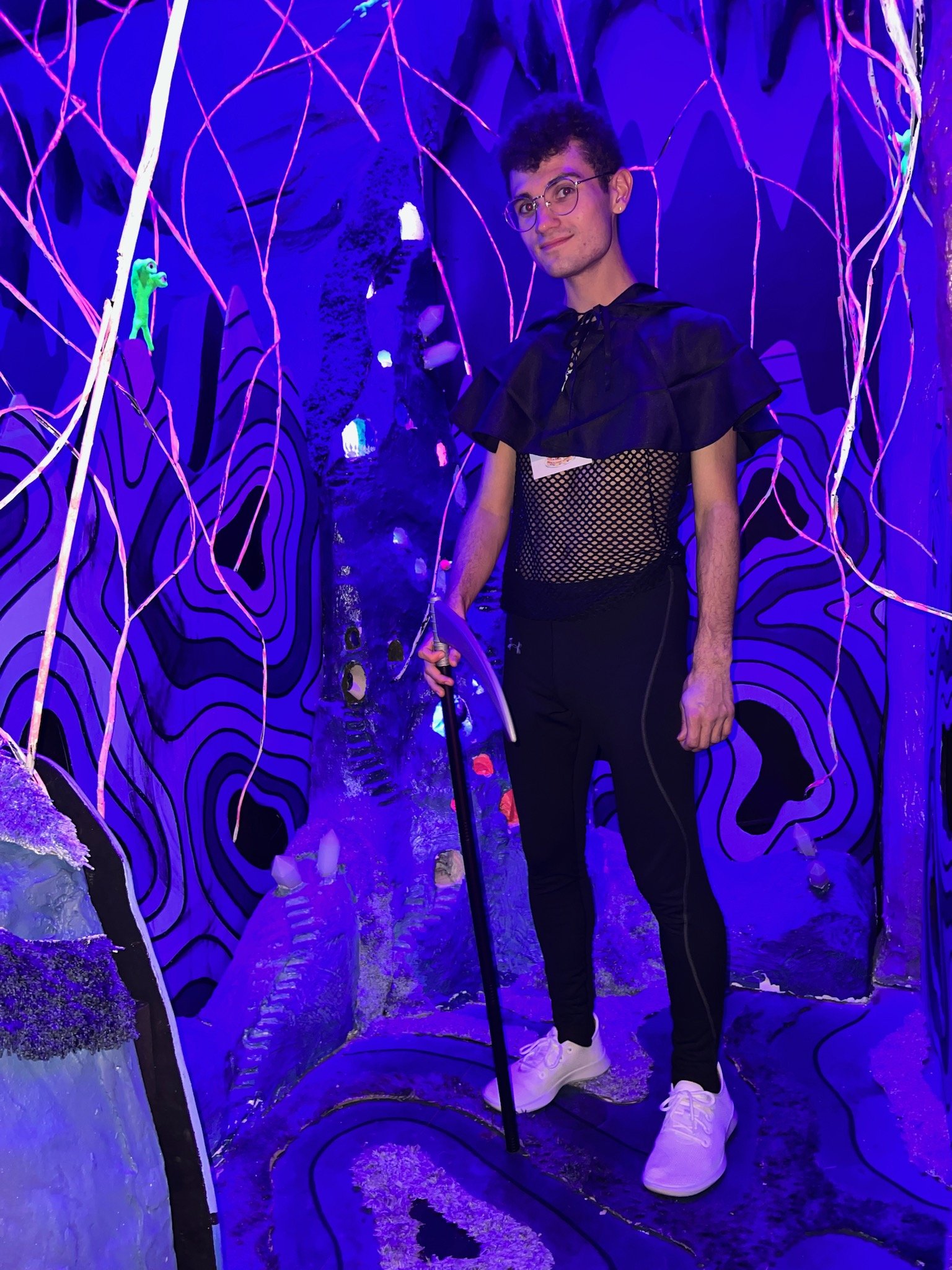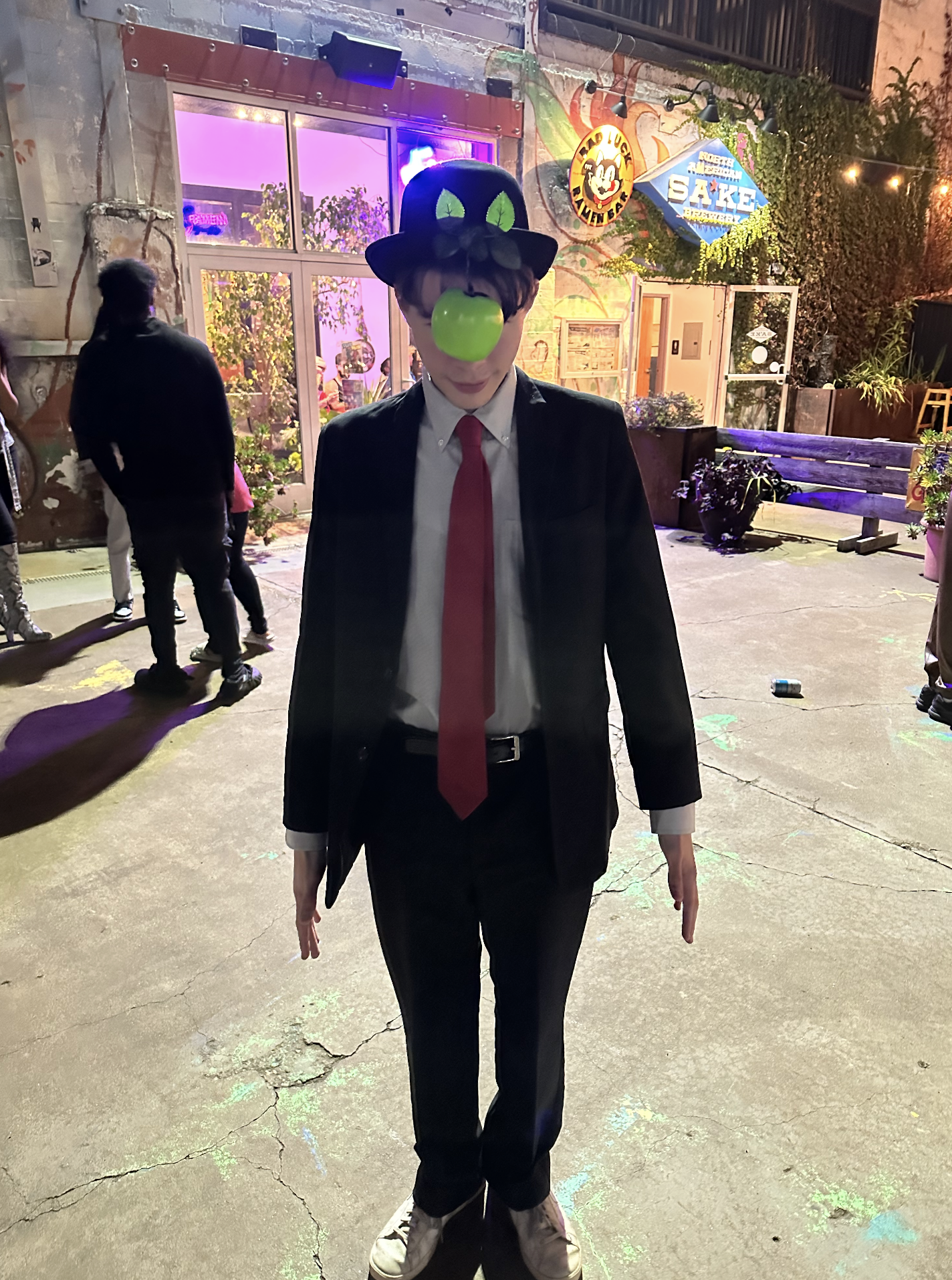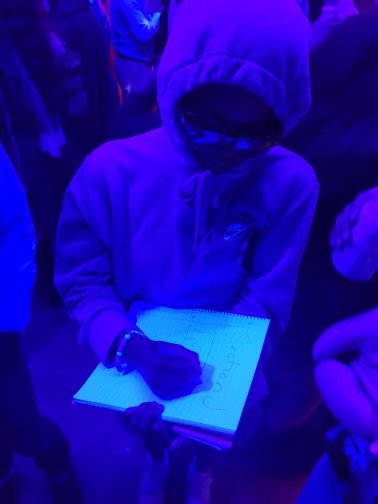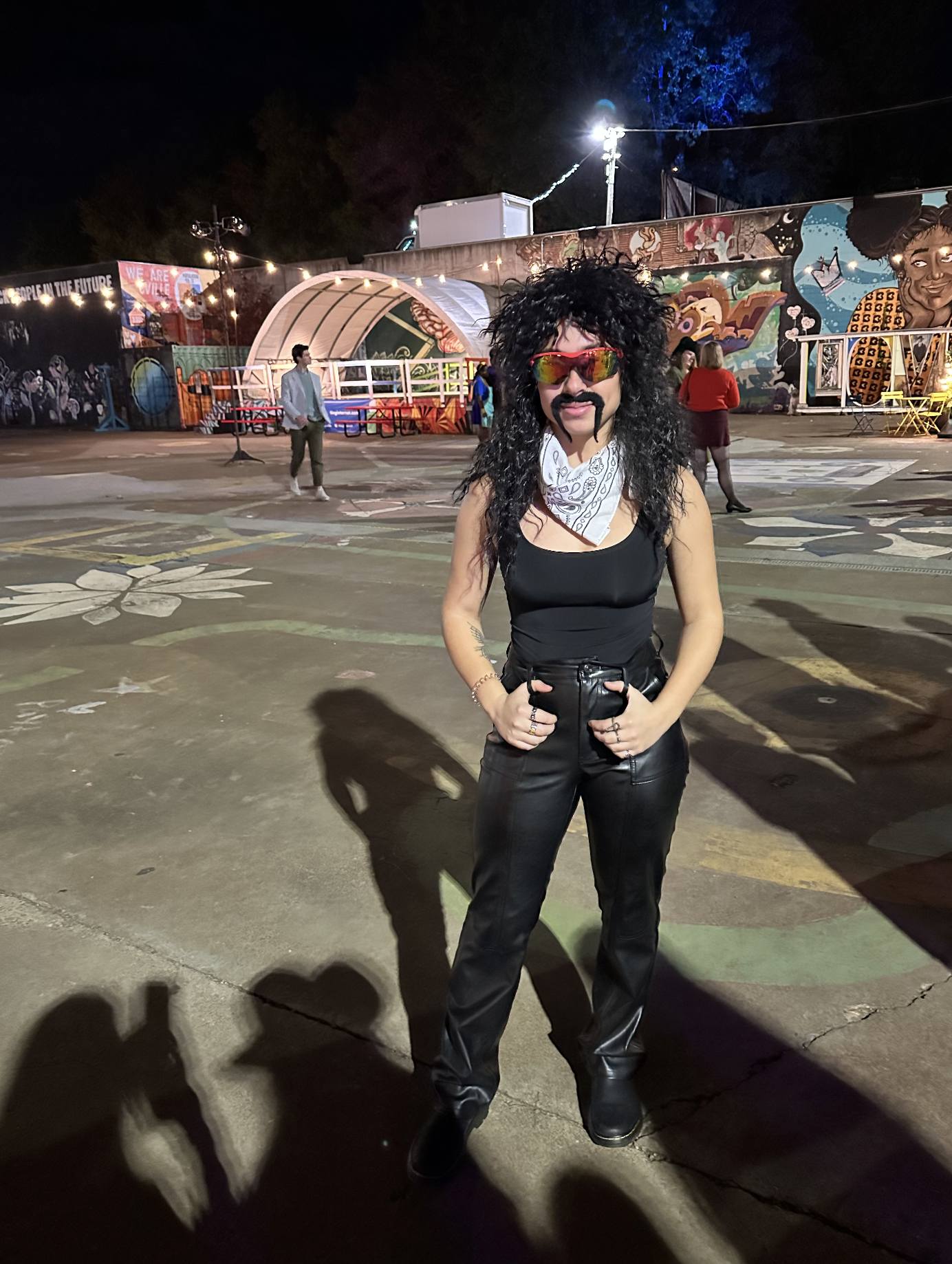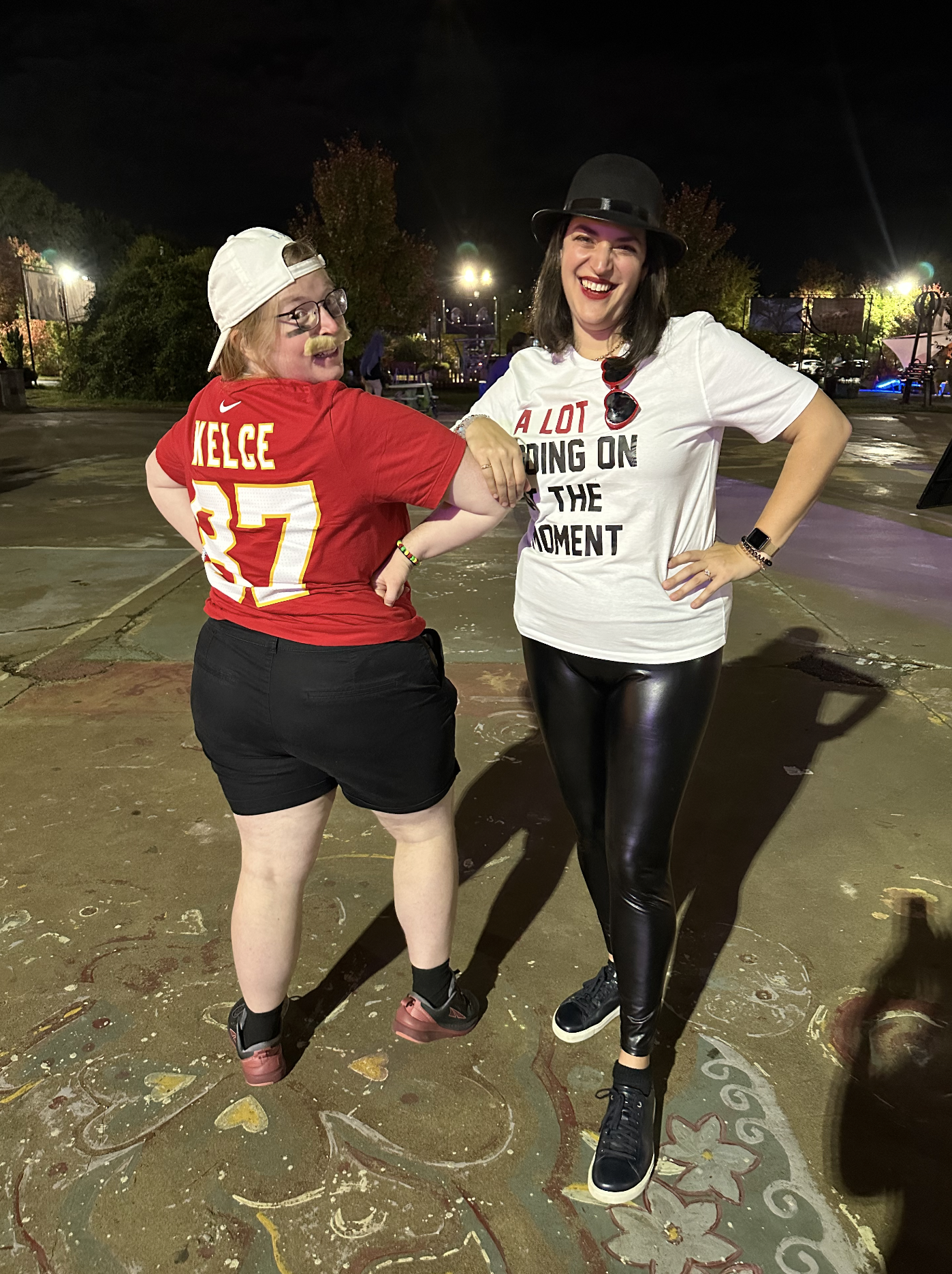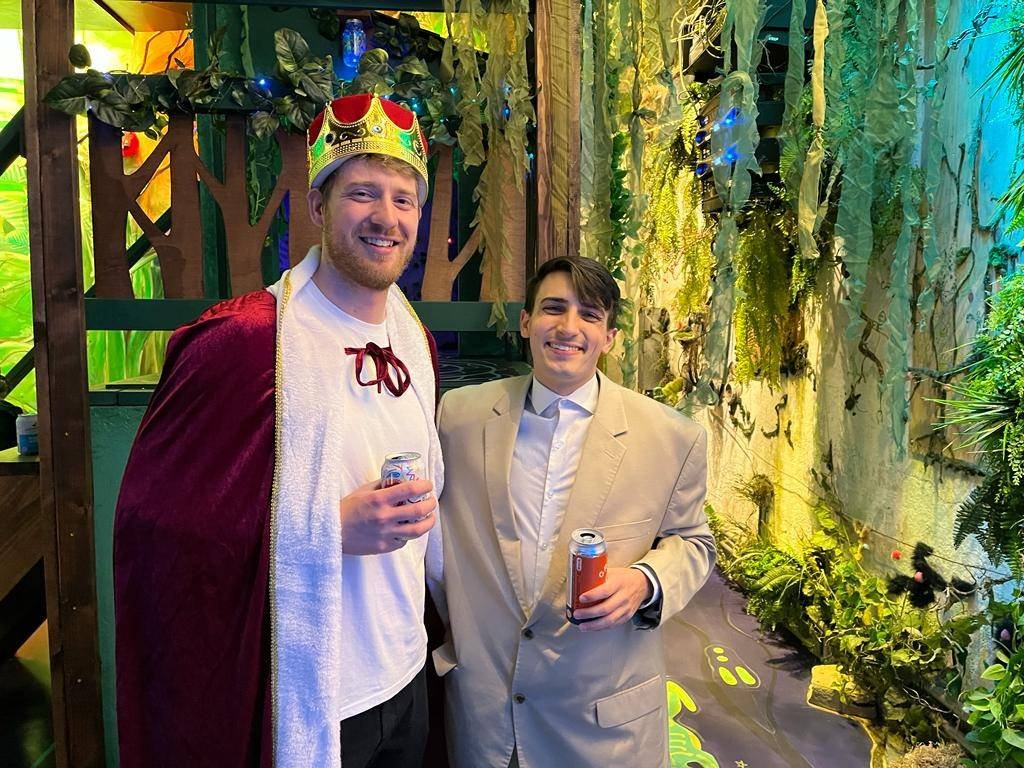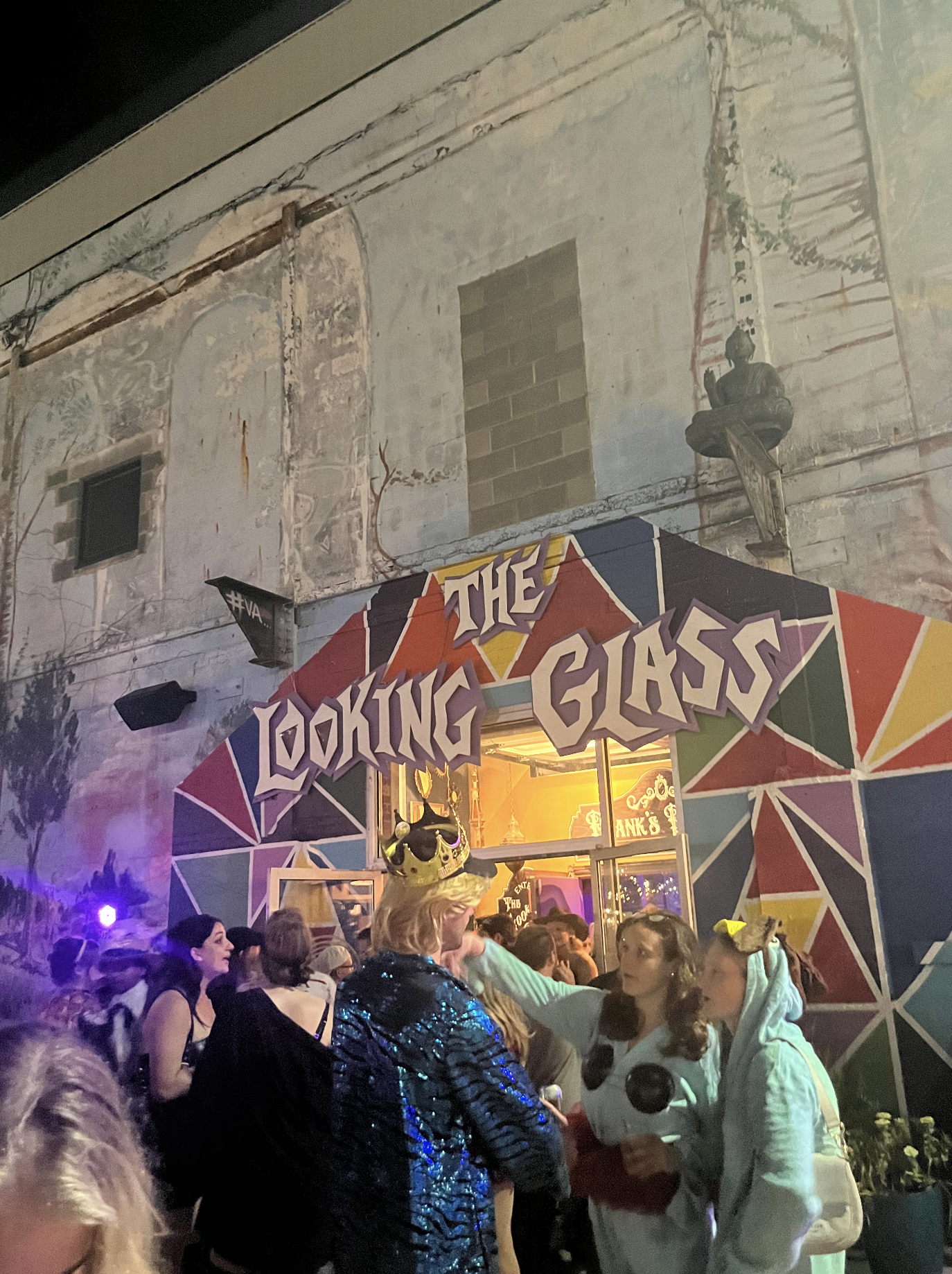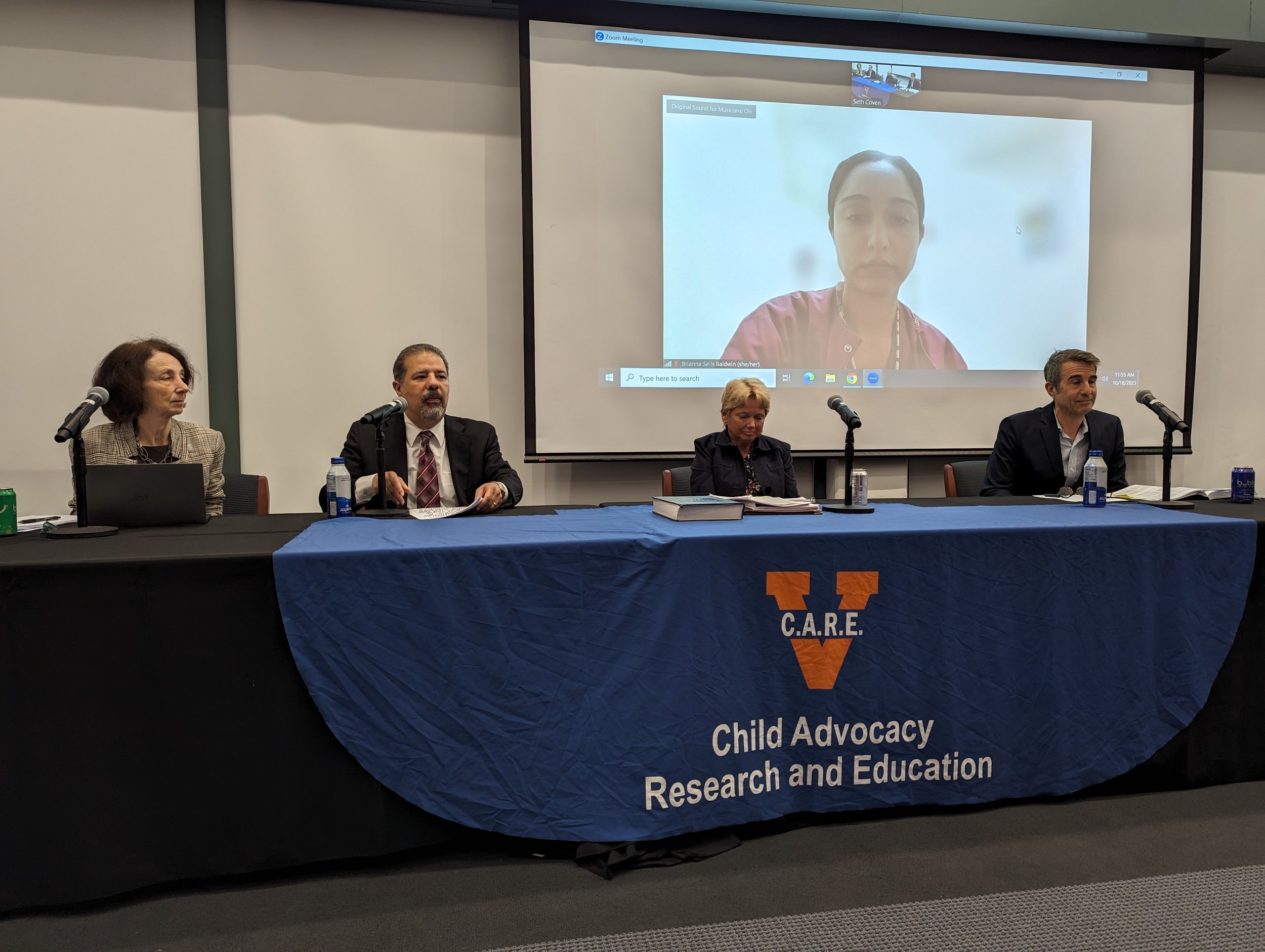On Thursday, January 25, the University of Virginia School of Law held their annual Martin Luther King, Jr. community celebration. The event was co-sponsored by the School’s Center for the Study of Race and Law and its chapter of the Black Law Students Association (BLSA). For this year’s celebration, keynote speaker Blake D. Morant ’78 (Col. ’75) delivered a lecture titled “The Contextuality of Dr. Martin Luther King Jr.’s Legacy,” and Keegan Hudson ’24 received the 2024 Gregory H. Swanson Award.
Professor Kimberly Robinson (Col. ’92), Karsh Bicentennial Professor of Law and director of the Center for the Study of Race and Law, welcomed those in attendance to Charlottesville and reminded guests of the impact of Dr. King’s legacy on Virginia Law and the legal community at large.
“We all owe a debt of gratitude to Dr. King,” Robinson said. “His legacy played a critical role in creating a path that allows us to gather together as the strong and diverse University of Virginia School of Law that we are today. His legacy challenges us to continue to work diligently to make equality, inclusion, and belonging a reality not just for our students, our faculty, and our staff, but even more importantly for the communities and clients that we serve.”
Following the opening remarks, Robinson invited Dean Risa Goluboff to present the seventh annual Gregory H. Swanson Award. The award was created in 2018 to honor the legacy of Swanson—the first Black student to be admitted to the University of Virginia and Virginia Law. In 1950, Swanson was denied admission to the Law School’s LL.M program due to his race. With the assistance of notable counsel from the NAACP Legal Defense and Education Fund, such as Thurgood Marshall and Spottswood Robinson, Swanson sued the University in federal court and won. Goluboff began by reflecting on the adverse treatment Swanson’s legacy has received from the University and reframed Swanson’s story as one of success and triumph.
“The story of Gregory Swanson had long, at the University of Virginia, been considered a story of shame and failure,” Goluboff said. “It had often been excluded from the way the institution had told its history although Black students and alums had passed it down from one to another for generations . . . there was so much success here for Gregory Swanson. Success in using the law to do justice and the best traditions of our profession, success in changing the face of this university and this law school, success in inspiring other Black students who quickly followed him to UVA, prompting other universities in Virginia to integrate after his successful lawsuit, and success in helping make us the diverse and inclusive institution we are today.”
Goluboff described the Swanson Award as a link between the past and the present since it provides an opportunity to reflect on Swanson’s previous contributions to the institution while also honoring current students’ contributions that mirror Swanson’s by demonstrating “courage, perseverance, and a commitment to justice.” Dean Goluboff shared how this year’s award recipient, Keegan Hudson ’24, embodies these values at the Law School, both on and off grounds.
“Keegan is a true servant leader,” Dean Goluboff said. “He routinely puts others before himself and he builds community wherever he goes in the organizations, and classes, and friend groups he is a part of . . . through his example he sets kindness, wisdom, and encouragement above all else and shares those with everyone around him enabling everyone to become their best selves.”
Hudson was recognized for his contributions and service to the University as chapter president of the Black Law Student Association, member of the Virginia Environmental Law Journal, fellow for the Center for the Study of Race and Law, admissions ambassador with the Office of Admissions, member of the Law School Curriculum Committee, member of the Raven Society, and member of the Student Advisory Group with the national Law School Admissions Council. Hudson is also a 2023-24 Ritter Scholar, which recognizes third-year law students who “best exemplify the qualities of honor, character, and integrity.” During his acceptance speech, Hudson thanked the University for the award and acknowledged how his accomplishments are the result of the support he has received from others.
“A person’s character is a direct reflection of the people that they share proximity to. As my great-grandfather would say, I have been fortunate to share proximity to ‘tall timber’ during my time at UVA Law and during my life generally,” Hudson said. “Let us not look favorably on the mentorship that I have enacted without acknowledging the mentorship that I have received from the many great professors, faculty, and peers here at UVA.”
Following the presentation of the Swanson award, Robinson introduced keynote speaker, Blake D. Morant. Morant is the Robert Kramer Research Professor of Law at George Washington University Law School. Additionally, Morant is the former dean of George Washington University Law School and Wake Forest University School of Law, where he was the first Black person to serve as dean at both institutions.
During his lecture, Dean Morant recounted significant facets and moments of Dr. King’s life and explored the context surrounding them. He argued Dr. King’s upbringing in the Black Baptist church, educational background in philosophy, and belief in natural law were very influential on his beliefs in racial justice and equality.
Additionally, Dean Morant argued Dr. King knew the effect of context on the persuasiveness of messaging and tailored the delivery of his messages to particular audiences. To illustrate, Dean Morant examined Dr. King’s famous “Letter from Birmingham Jail,” where King addressed the white clergy who criticized him for protesting in violation of a court order, invoking Saint Augustine: “An unjust law is no law at all.”
Dean Morant also discussed how context impacted Dr. King’s messaging when he delivered a speech at the University’s own Old Cabell Hall in 1963. To begin the story, Morant described the circumstances leading up to Dr. King’s visit, including the origins of the group that invited the famous civil rights leader to Grounds.
“In the early ’60s, the University of Virginia and many non-HBCU universities across the country were largely segregated and had very few students of color in attendance,” Morant said. “In 1963, however, several African American students attended the University [of Virginia], one by the name of Wesley Harris . . . after experiencing disparate treatment in academic programming, Harris, fewer than twelve other African American students, and a number of white students formed the Thomas Jefferson Virginia Council on Human Relations.”
Morant explained that the Council’s goal was to create safe spaces for students of color on Grounds and sponsor events to discuss the impact of social issues on the University and greater Charlottesville community. The Council would meet to study Dr. King’s philosophy, and one day, on behalf of the group, Harris sent a letter to Dr. King inviting him to speak, which Dr. King accepted. Morant noted Dr. King’s appearance at the University subverted the Council’s expectations.
“Wesley Harris and many others in attendance expected Dr. King . . . to deliver a stern sermon on the evils of segregation and the importance of racial equality and unity,” Morant said. “Much to everybody’s surprise, King offered a scholarly lecture on the meaning of democracy and the duty to adhere to fundamental principles of equality. Aware of the scholarly context of the University, Dr. King adapted his style of oratory to fit the academic setting to which he was addressing.”
Dean Morant argues that everyone engaged in the modern effort for social justice should continue Dr. King’s mission of spreading the philosophy of equality. Dean Morant further argues that the legal community must acknowledge how context impacts the law and legal outcomes in order to earnestly aid in the fight for equality.
“The lack of inclusion in society delegitimizes societal institutions that hold our democracy together,” Dean Morant said. “Society functions best when all classes of citizens have a seat at the decisional table and have access to competent legal representation that recognize that context shapes the law we study and implement.”
---
alj3emz@virginia.edu


